| Translation (Hebrew) | Source (English) |
|---|---|
אֵל שְׁמֹר מַלְכָּתֵנוּ, לְעוֹלָם תְּחִי מַלְכָּתֵנוּ, אֵל שְׁמֹר הַמַּלְכָּה׃ שְׁלַח שָׁלוֹם בִּנְוֶהָ, בְּעֹז וְהָדָר עַטְּרֵֶהָ, לָעַד הַמְשִׁילֶהָ, אֵל שְׁמֹר הַמַּלְכָּה׃ |
God save our gracious Queen, Long live our noble Queen, God save the Queen! Send her victorious, Happy and glorious, Long to reign over us, God save the Queen! |
אָנָּא אֱלֹהִים קוּמָה, בְּאוֹיְבֵיהָ תְּנָה מְהוּמָה, וְהַפִּילֵימוֹ׃ הָפֵר תַּחְכֻּלֹתָם, סַכֶּל־נָא עֲצָתָם, לְעַמָהּ תֵּן מִשְׁאֲלֹתָם, וְהוֹשִׁיעֵמוֹ׃ |
O Lord our God, arise, Scatter her enemies,[1] Cf. Psalms 68:2. And make them fall Confound their politics, Frustrate their knavish tricks, On her our hearts are fixed, O save us all. |
מִבְחַר בִּרְכָתְךָ אֵל! לְהָרִיק עָלֶיהָ הוֹאֵל, לָעַד תִּמְלוֹךְ![2] ”תְּהִי הַמַּלְכָּה” in the 1887 Jubilee rendition. תָּגֵן בְּעַד חֻקֵּינוּ, אָז יִשְׂמַח לִבֵּנוּ, וְנָשִׁיר בְּכׇל מְאֹדֵנוּ, אֵל שְׁמֹר הַמַּלְכָּה! |
Thy choicest gifts in store On her be pleased to pour, Long may she reign! May she defend our laws, And ever give us cause To sing with heart and voice, God save the Queen! |
“God Save the Queen” is an adaptation of “God Save the King,” a work by an unknown author, first circulated in three stanzas during the reign of Britain’s King George Ⅱ, circa 1745. This Hebrew translation was published in a pamphlet circulated by New Road (Whitechapel) Synagogue in 1892 “on the 73rd Birthday of Her Majesty Queen Victoria,” an event attended by then chief rabbi of the British Empire, Rabbi Dr. Hermann Adler. The wording in the Hebrew is different in one line compared to its publication at the Queen’s Jubilee celebration in 1887. The first queen of Great Britain was Queen Anne Ⅰ (1665-1714) who reigned from 1702-14.
The Hebrew translation of “God Save the King,” (El Shemor haMelekh) was originally as translated by Hyman Hurwitz with an added fourth stanza (not included with God Save the Queen). God Save the King was first published in Hurwitz’s The Etymology and Syntax of the Hebrew Language (1831), pp. 276-279, during the reign of King William Ⅳ (1765-1837).
We are grateful to the Jewish East End of London website for providing a page images of the ephemeral document containing the lyrics in 1892. –Aharon Varady
Source(s)


“אֵל שְׁמֹר הַמַּלְכָּה | God Save the Queen (adapted from the Hebrew translation of Hyman Hurwitz 1831)” is shared through the Open Siddur Project with a Creative Commons Public Domain Dedication 1.0 Universal license.
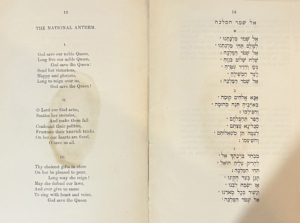
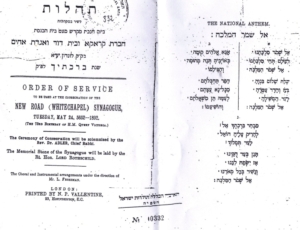


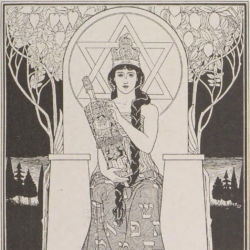
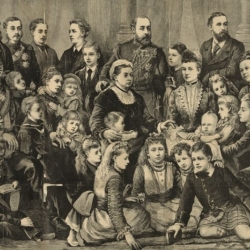




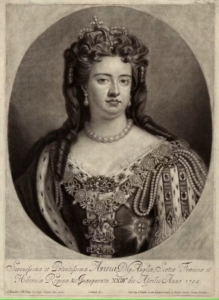


Comments, Corrections, and Queries